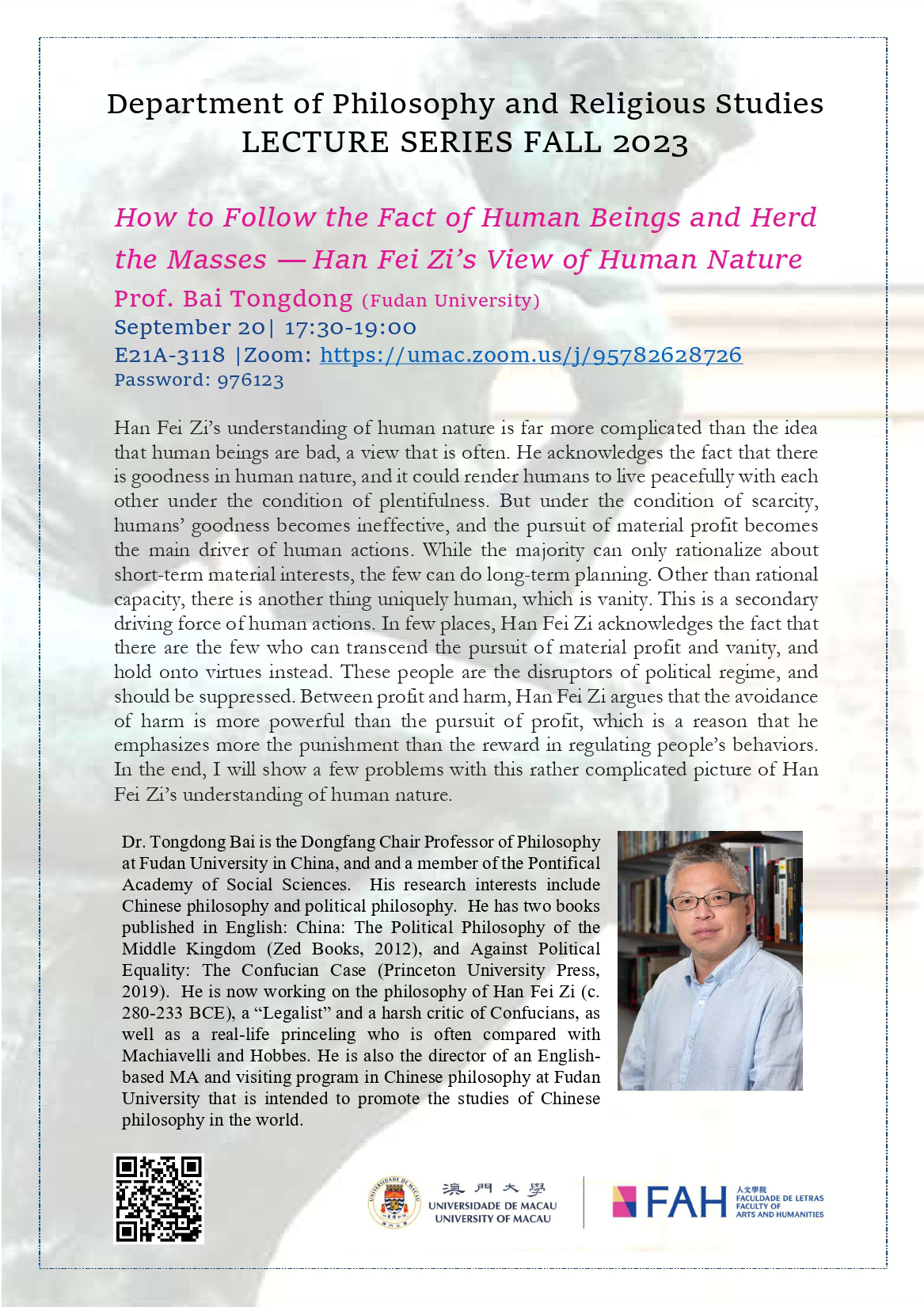

FAH/DPHIL Lecture Series – “How to Follow the Fact of Human Beings and Herd the Masses — Han Fei Zi’s View of Human Nature” by Prof. Bai Tongdong, Fudan University, China
2023-09-20 @ 5:30 pm ~ 7:00 pm
Zoom: https://umac.zoom.us/j/95782628726
Password: 976123
Abstract
Han Fei Zi’s understanding of human nature is far more complicated than the idea that human beings are bad, a view that is often. He acknowledges the fact that there is goodness in human nature, and it could render humans to live peacefully with each other under the condition of plentifulness. But under the condition of scarcity, humans’ goodness becomes ineffective, and the pursuit of material profit becomes the main driver of human actions. While the majority can only rationalize about short-term material interests, the few can do long-term planning. Other than rational capacity, there is another thing uniquely human, which is vanity. This is a secondary driving force of human actions. In few places, Han Fei Zi acknowledges the fact that there are the few who can transcend the pursuit of material profit and vanity, and hold onto virtues instead. These people are the disruptors of political regime, and should be suppressed. Between profit and harm, Han Fei Zi argues that the avoidance of harm is more powerful than the pursuit of profit, which is a reason that he emphasizes more the punishment than the reward in regulating people’s behaviors. In the end, I will show a few problems with this rather complicated picture of Han Fei Zi’s understanding of human nature.
Bio
Dr. Tongdong Bai is the Dongfang Chair Professor of Philosophy at Fudan University in China, and and a member of the Pontifical Academy of Social Sciences. His research interests include Chinese philosophy and political philosophy. He has two books published in English: China: The Political Philosophy of the Middle Kingdom (Zed Books, 2012), and Against Political Equality: The Confucian Case (Princeton University Press, 2019). He is now working on the philosophy of Han Fei Zi (c. 280-233 BCE), a “Legalist” and a harsh critic of Confucians, as well as a real-life princeling who is often compared with Machiavelli and Hobbes. He is also the director of an English-based MA and visiting program in Chinese philosophy at Fudan University that is intended to promote the studies of Chinese philosophy in the world.

